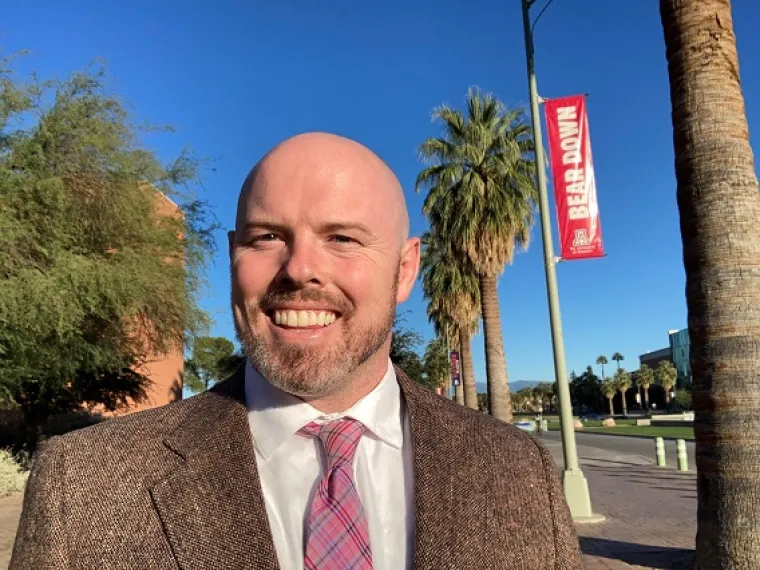Charles McMartin
Charles McMartin is a PhD candidate in Rhetoric Composition and the Teaching of English at the University of Arizona. He currently serves as the Graduate Coordinator of the award-winning community writing pathways program, Wildcat Writers, the Co-Chair of UA's English Graduate Union, and the co-chair of the Graduate Student Standing Group for the Conference on College Composition and Communication (CCCC).
His dissertation, Teaching Towards Coalitions: Case Studies in Arizona Counterpublics, documents the coalitional leadership of student activists in Southern Arizona during three critical periods in Arizona's history: the late nineteenth century during the onset of Americanization programs, the 1960s and 1970s during the civil rights movement, and the crusade to ban ethnic studies in Tucson schools between 2007 and 2010. He conducted this research as a digital humanities fellow for Reporting on Race and Ethnicity in the Borderlands (1882-1924): A Data-Driven Digital Storytelling Hub. Scholarship from his dissertation includes a recent co-authored article in Peitho Journal and forthcoming articles in Rhetoric Review and Reflections: A Journal of Community-Engaged Writing and Rhetoric.
His study of coalitional leadership extends to how early-career faculty in writing studies and related fields are responding to the pandemic and its aftermath, including its continuing impact on departments’ collaborative cultures and students’ sense of well-being. He has translated his coauthored interview study with thirty recent Phds into a forthcoming article in College English and a forthcoming edited collection with Utah State University Press highlighting the leadership of Next-Gen faculty in English departments.
He regularly teaches community-engaged composition and social justice rhetoric courses. His teaching is informed by his commitment to culturally sustaining pedagogies and his experience working with multilingual students. His courses prepare students to build coalitions to defend their communities and histories against attacks on culturally responsive pedagogies.


